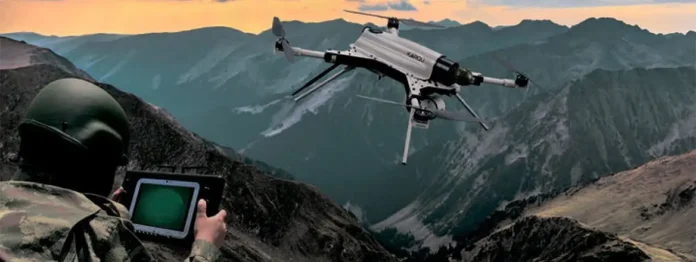Author: Dr. Ali Bakir
Affiliation: Ibn Khaldon Center for Humanities and Social Sciences at Qatar University
Organization/Publisher: Royal United Services Institute (RUSI)
Date/Place: September 27, 2021 / London
Type of Literature: Analysis
Word Count: 1600
Keywords: Turkey, UAV, Electronic Warfare Systems, Aselsan, Havelsan, Tubitak, Bayraktar, UAV
Brief:
This analysis highlights the success of Turkey’s electronic warfare systems (EWSs) which the world has witnessed in Nagorno-Karabagh, Libya and Syria. The rise of Turkey’s defense industry is intriguing as it comes when the world’s biggest defense spenders including Russia, the US and China are in a tough competition to dominate the electromagnetic spectrum. Turkey’s quest for strategic autonomy and the direction of its defense industry in the past two decades has already started giving dividends to Ankara. The country of 83 million people could only meet 25% to 30% of its defense needs domestically in 2000, but in 2021 Turkey has reached a point of meeting more than 70% of its defense requirements locally. This has enabled Turkey to wield its power diplomatically, as well as militarily – what is popularly known as “on table and in field” actions. The success of the Turkish defense industry can be measured by the fact that Turkey is the only Muslim country among the top 20 exporters of defense equipment. Defense News, a global defense news outlet, last year ranked seven Turkish companies in its top 100 globally. As Turkey’s drone power – the unmanned aerial combat vehicles (UACVs) — overshadowed much of the world’s defense interests, this analysis particularly draws attention to Turkey’s indigenously built electronic warfare systems, i.e. KORAL. The author argues this system has let Turkey’s “strategic and military planners to boost the efficiency and lethality of its UACVs.” What is KORAL? It is a Land-Based Stand-off Jammer System with an effective range of 150–200 km. It was in early 2000 that Turkey’s Defense Industry Executive Committee adopted the idea as a response to “increasing threats and to meet the growing needs of the Turkish air force command.” Fast forward to 2009, the contract for manufacturing the system was issued, and by 2016 the KORAL EWS entered the Turkey Armed Forces’ inventory. “Since 2016, the KORAL has been battle-tested in different environments, including critical theatres in Syria, Libya and Azerbaijan, demonstrating impressive capabilities and executing complex roles in the first-ever wars won by unmanned systems,” the author notes. It has particularly destroyed the Russian-made Pantsir air defense systems –from Syria to Libya to Nagorno-Karabagh.
By: Riyaz ul Khaliq, CIGA Non-resident Research Associate




